From Hades to Immortals Fenyx Rising, Greek mythology is inspiring a new wave of comedy in video games
Why games are finally embracing Greek mythology's funny bone
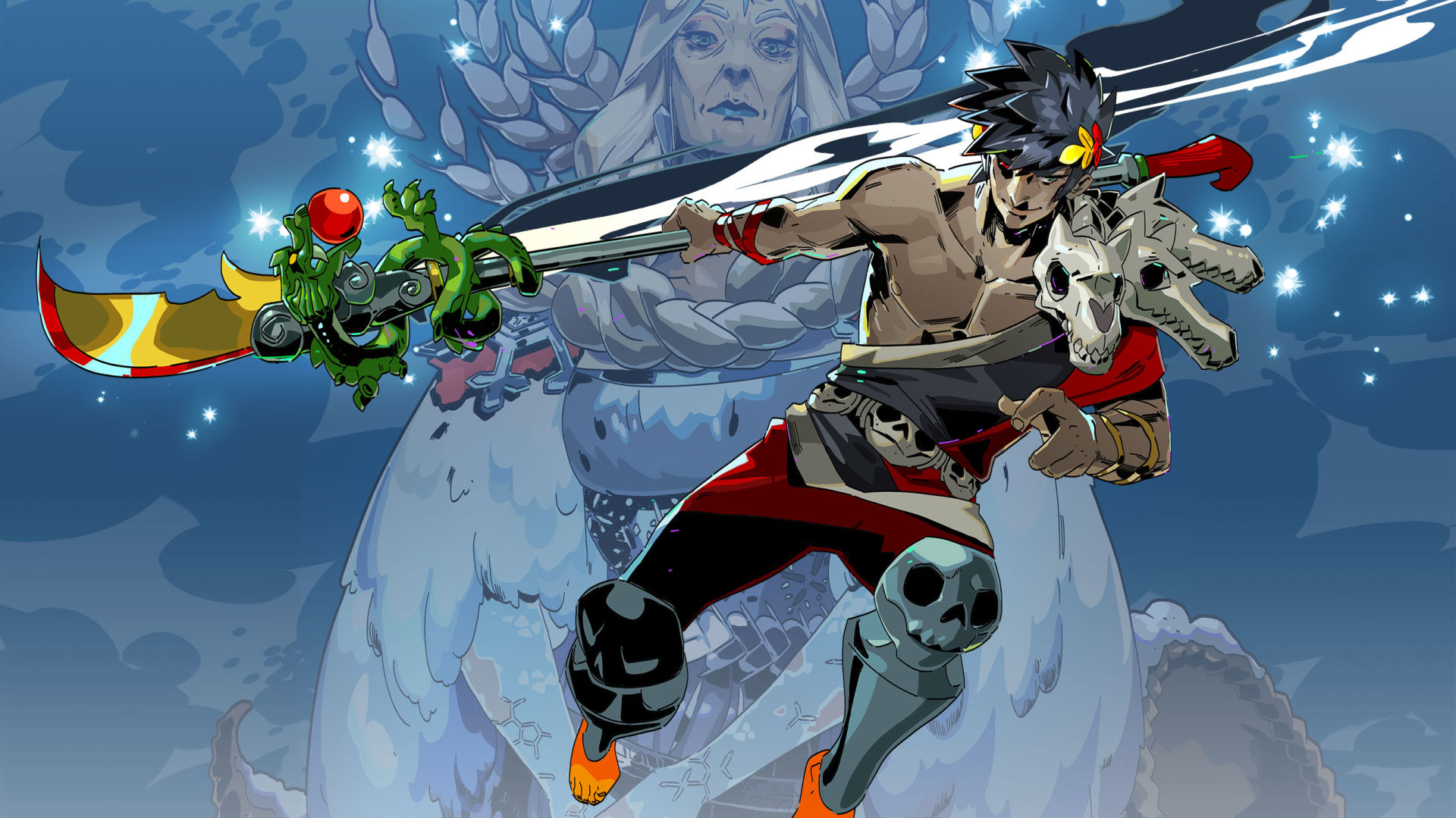
If you were headed to the amphitheatre for an evening out back in Plato's day, you'd have a 50/50 shot at guessing the genre of that night's show. Ancient Greek playwrights were masters of the tragedy and the comedy, either lamenting the plight of a fallen hero or sending up contemporary society in outlandish fashion, usually with a generous sprinkling of phallic innuendos to labour the… *ahem* point.
Look to the stories of the gods and mortals that the Greeks believed in, and it's not hard to see why; from the tragic tale of Oedipus to that one time Zeus seduced a princess as a swan, they're usually either quite sad, darkly humoured, or a little bit of both. The games industry's appropriation of Greek mythology, however, has historically lent towards the former, with self-serious tales of loss, vengeance, and bloodshed that tend to avoid anything much in the way of comic relief, as anyone who's played the early God of War games will tell you.
But that trend is starting to turn the other direction, with games like Hades and Immortals Fenyx Rising finally embracing the lighter side of Greek mythology, telling self-aware stories that successfully trigger the funny bone, and not just the tear ducts.
That joke is ancient
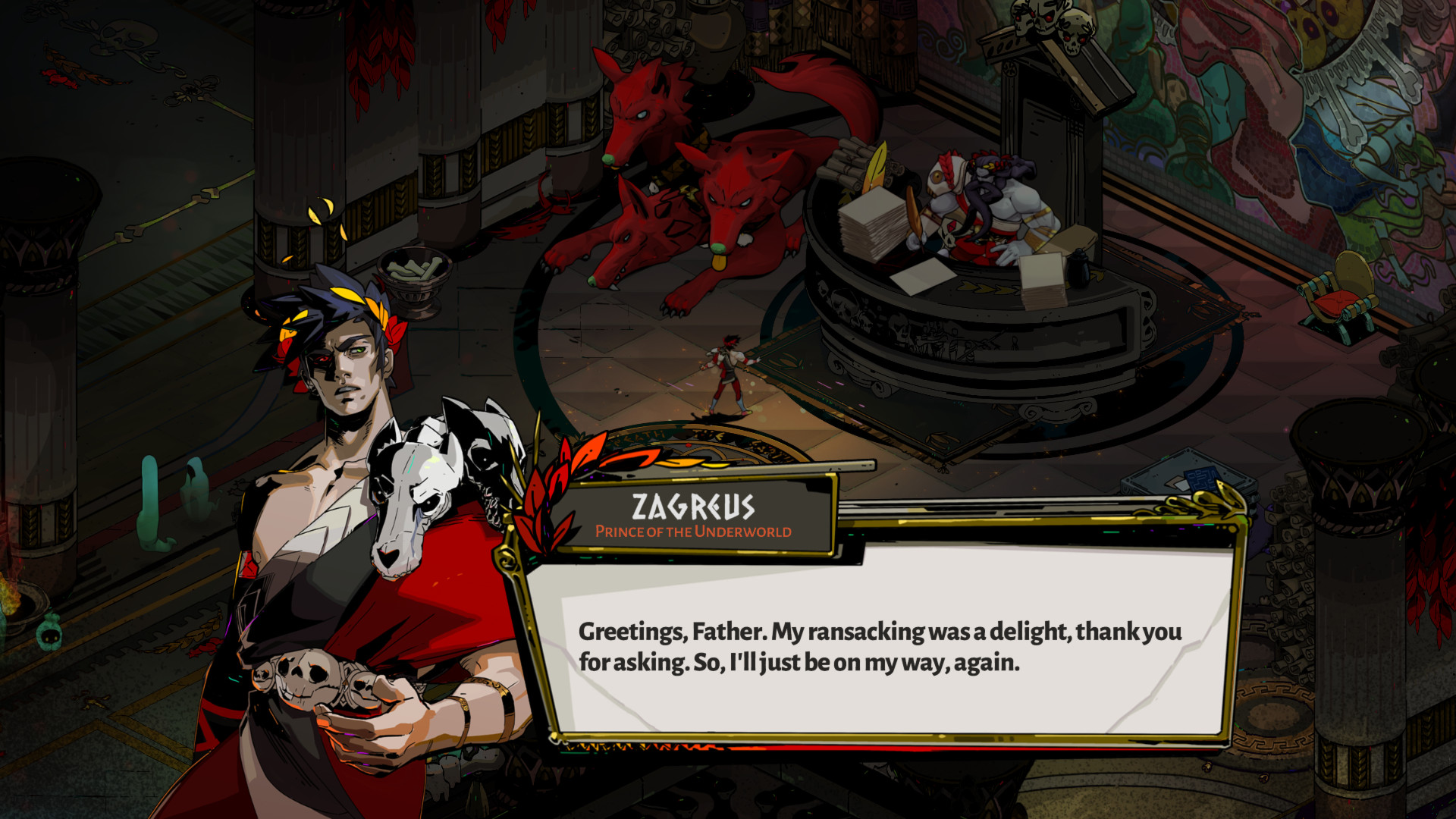
"Comedic takes on Greek myth date back thousands of years," explains Greg Kasavin, creative director at Supergiant Games, the studio behind 2020's critically acclaimed roguelike, Hades. "For some reason comedy tends to feel like it's a modern invention, but people have been poking fun at themselves throughout recorded history. I think Greek myth lends itself to comedy because it's grounded in a worldview that acknowledges that life can be ironic and unfair, seeing as the world is ruled over by these sometimes-fickle gods who are usually much more concerned about their own affairs than us mortals."
That sense of immortal insularity is very much on display in Hades, in which Zagreus, the son of the eponymous god of the dead, attempts to escape the underworld. His interactions with the rest of the Greek pantheon, from folksy uncle Poseidon to the sultry Aphrodite, expertly illuminate each deity's surprisingly human character flaws over time, and the Prince of the Underworld's droll reflections on each encounter only serves to play up the dramatic irony of it all.
"We've never had a speaking protagonist in one of our games prior to Zagreus," continues Kasavin, "so of course he was very important to get right. We wanted him to be able to speak to any aspect of the emotional experience of roguelike games: the frustration, the grim determination, the self-effacing humor, the surprise, and so on. While he has his own point of view on everything, whenever his experience lines up with the player's own tends to make for strong moments."
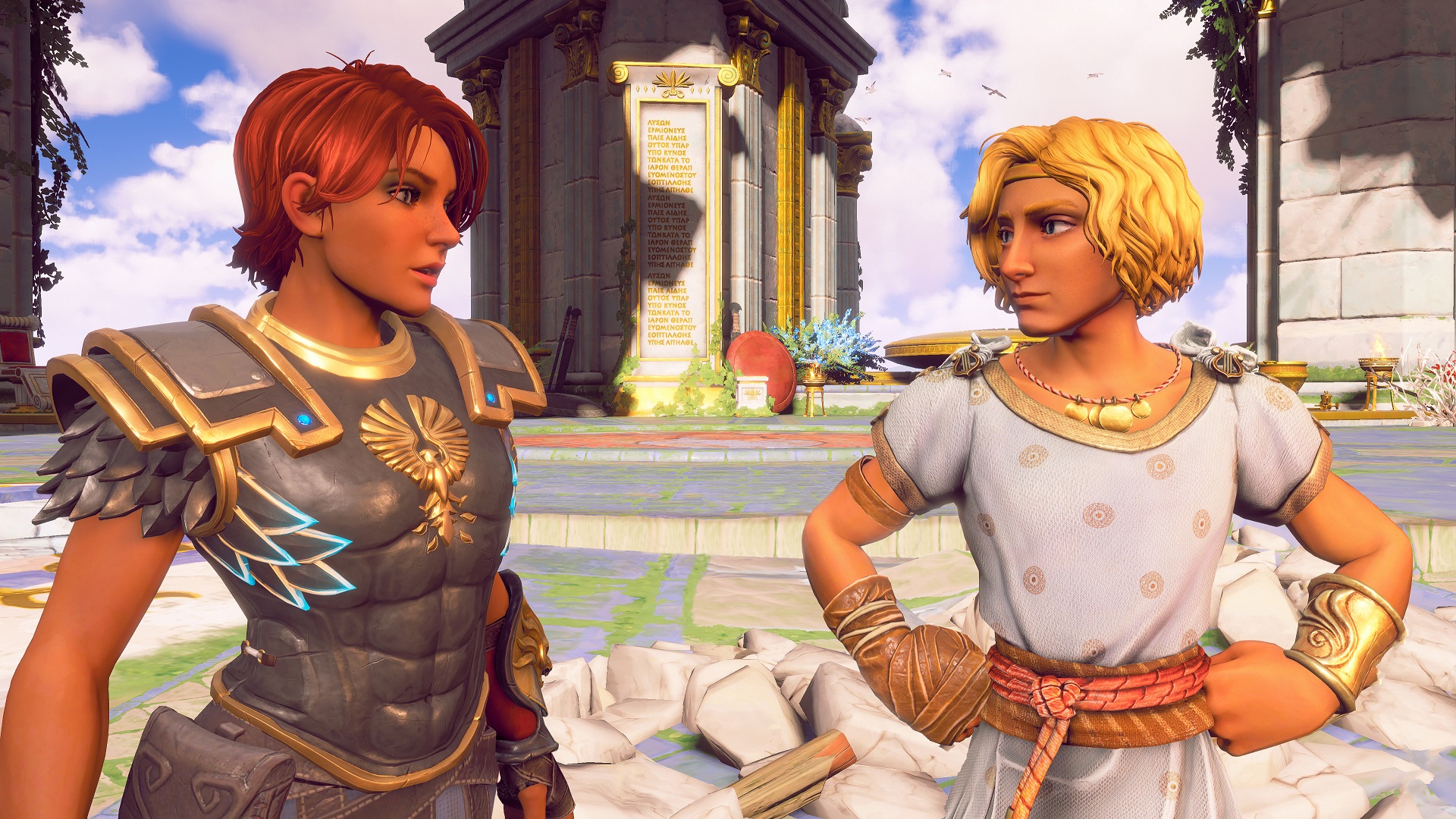
Another recent release which indulges the humour of the gods is Ubisoft Quebec's Immortals Fenyx Rising. Littered with fourth-wall breaks, innuendos, and puns, Fenyx's adventure is framed through the snappy, back-and-forth chatter of Zeus and Prometheus, underscoring the player's antics across the Golden Isle with their self-aware narration.
Sign up to the GamesRadar+ Newsletter
Weekly digests, tales from the communities you love, and more
According to narrative director Jeffrey Yohalem, the studio wanted to "offer players a lighthearted escape from a very hard year" with a Greek odyssey that wasn't all high drama and histrionics. "Many of the more recent works inspired by Greek mythology leave out this humor," he tells me, acknowledging that "the video game industry is dominated by serious dramas."
"Most of us grew up reading the myths, we already know quite a bit about them, so coming at them from a more modern, comedic perspective is surprising and hits the referential comedy funny bone. For newcomers, the stories are already so outrageous that getting into the outlandish details, the juicy, messy interpersonal relationships, is eye-opening and funny at the same time."
Pantheon panto
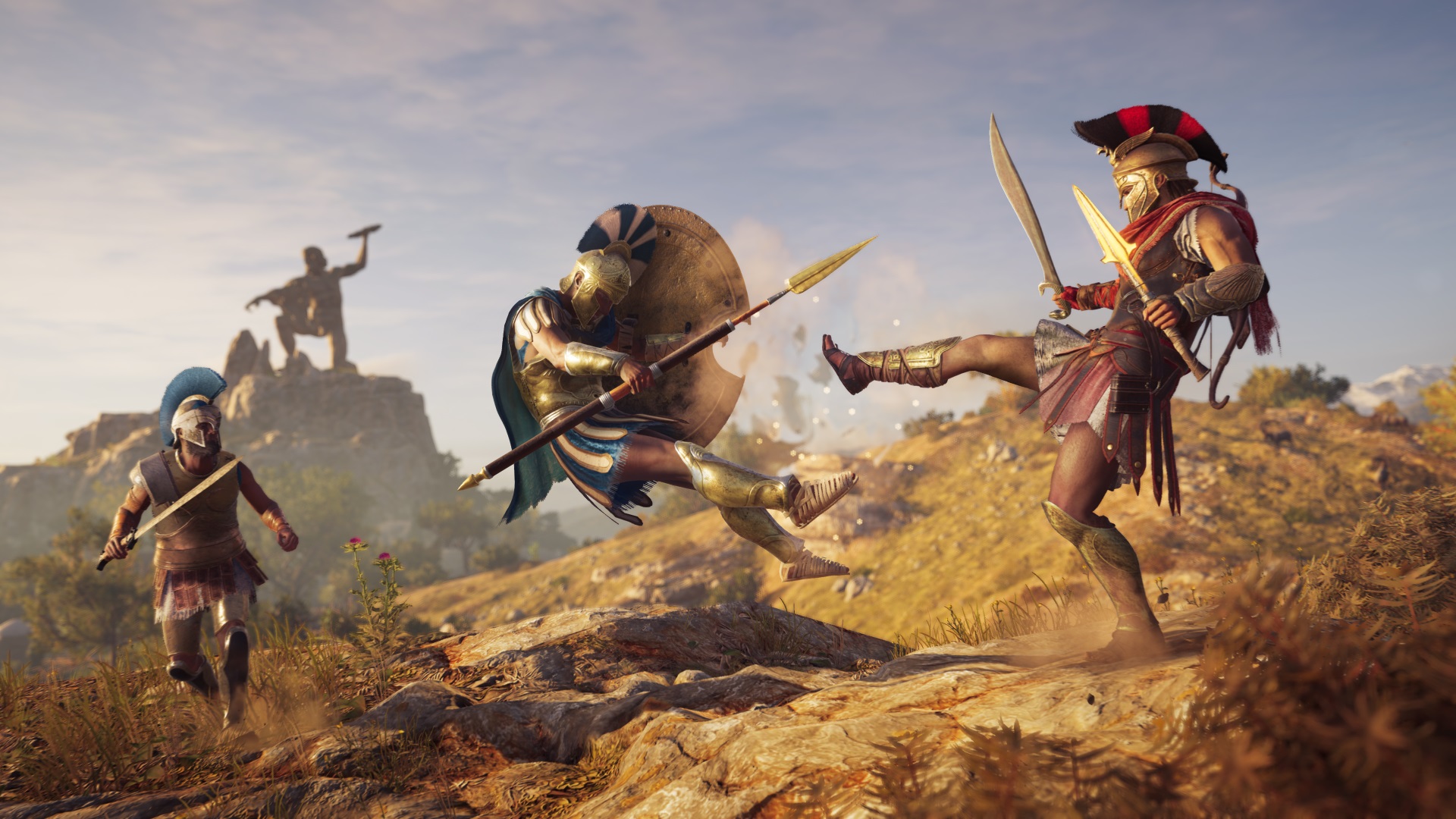
"Greek myth lends itself to comedy because it's grounded in a worldview that acknowledges life can be ironic and unfair
Greg Kasavin
Perhaps unsurprisingly given the Greeks' fine line between comedy and tragedy, Hades came very close to being a much darker tale, where players would don the role of Theseus hunting down the dreaded Minotaur in the Labyrinth of Crete. But the project's roguelike framework inspired Supergiant to eventually walk a different path, as Kasavin reveals.
"When thinking about roguelikes, we observed they have an inherently slapstick quality, where one moment you feel like you're unstoppable, and the next, you make some bone-headed mistake and die in some ignoble fashion. Sometimes that can be frustrating, but it can also be funny. We figured if our game could laugh along with you, it would take the sting out of the moment, and help make the experience feel more encouraging and positive rather than soul-crushing."
"We switched the theme to be this story about the Prince of the Underworld trying to run away from home and reach the surface, and the more lighthearted tone flowed from there. The image of Cerberus, the notorious hound of hell, as the family dog down in the House of Hades was something that I think helped crystalize the tone we were going for."
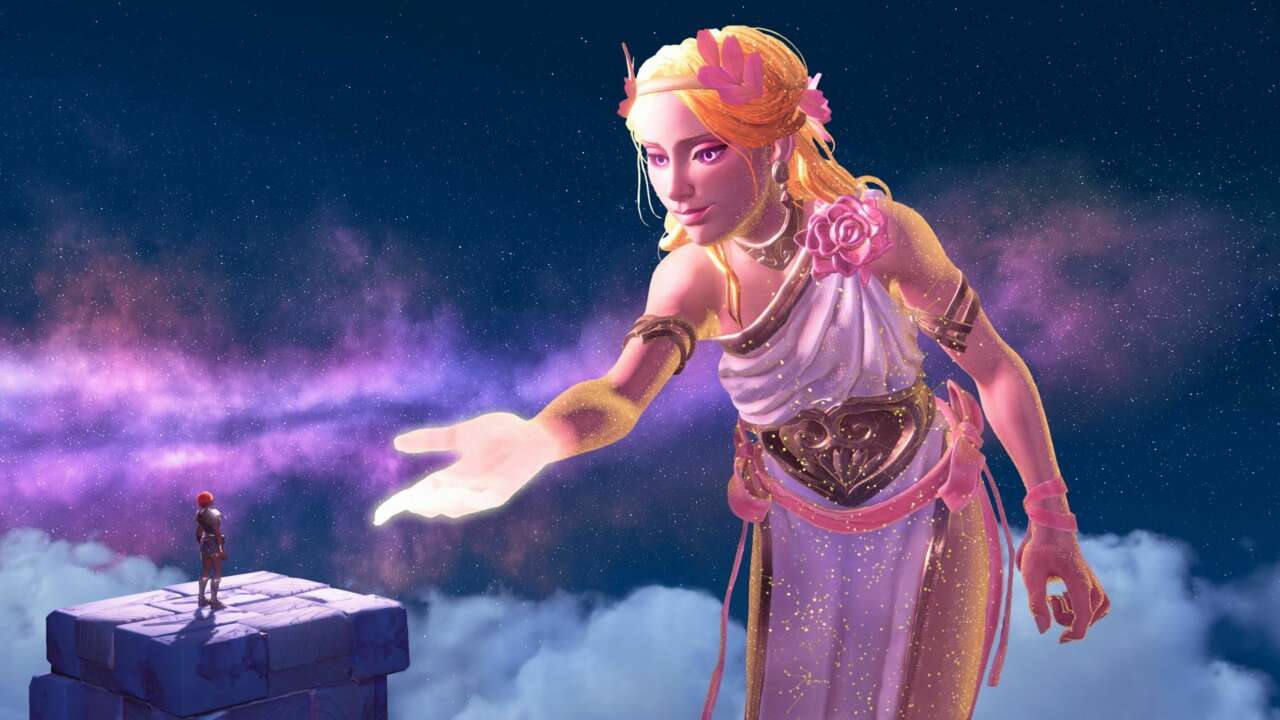
For Immortals Fenyx Rising, Ubisoft Quebec also had to walk a tonal tightrope of its own, ensuring that the game's sense of humour didn't undermine the gravitas of its hero's dramatic struggle to defeat Typhon. "The Greeks believed in balance and their myths reflect that," says Yohalem. "Similarly, comedy can diminish the life-or-death stakes of an adventure. So we looked at inspirations like The Princess Bride and Guardians of the Galaxy to achieve the right balance and never let the comedy puncture the plot. But I think the original Greek myths also achieved that perfect balance, so we were in good company!"
Striking comedy in games is no easy feat, but both Hades and Immortals Fenyx Rising demonstrate how Greek myth can be fertile ground for bringing humour to household living rooms. Will their success encourage future developers to portray the pantheon with a little more playfulness? With Kratos now firmly in Norse territory, there's certainly room for more games to explore the idea, and Kasavin hopes that they might follow in Hades' footsteps.
"It's certainly tempting to portray the gods in some gritty, dark, and sinister way. But it's also possible to show their humanity, their quirks, and idiosyncrasies - qualities that are interesting and humorous. After all, comedy is often about finding the truth in things, and what are the Greek gods if not a reflection of ourselves?"
For more, check out our list of the best horror games to play right now, or watch the video below for our full review of The Medium.
I'm GamesRadar's Features Writer, which makes me responsible for gracing the internet with as many of my words as possible, including reviews, previews, interviews, and more. Lucky internet!




